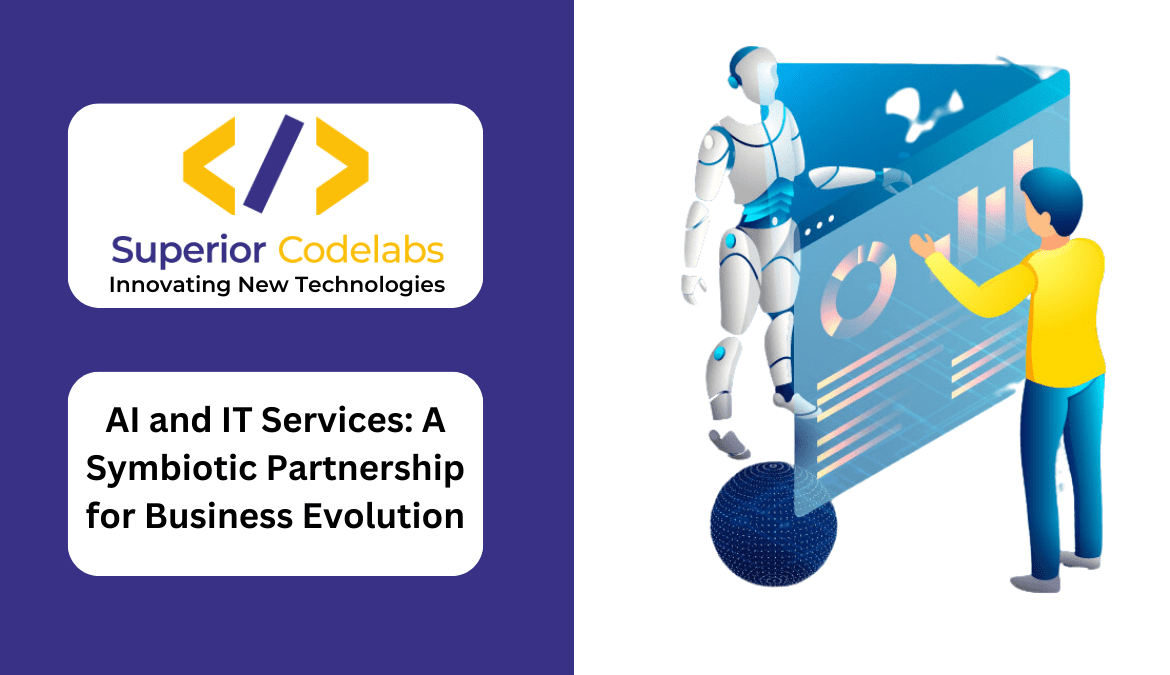In today’s fast-paced business landscape, staying ahead of the competition requires a strategic approach that harnesses the power of technology. One of the most transformative partnerships in recent years has been the synergy between Artificial Intelligence (AI) and Information Technology (IT) services. This dynamic collaboration has not only revolutionized how businesses operate but also holds the key to unlocking unprecedented growth and innovation.
The AI-IT Services Nexus
Artificial Intelligence, characterized by machines that can perform tasks requiring human intelligence, has rapidly emerged as a game-changer for businesses across various industries. Meanwhile, IT services encompass a wide range of technical support and solutions, such as infrastructure management, cybersecurity, and software development. When AI and IT services join forces, they create a symbiotic relationship that can drive business evolution in several ways.
Enhanced Efficiency and Productivity
The integration of AI into IT services allows businesses to automate routine tasks and optimize processes. AI-powered algorithms can analyze vast amounts of data in real-time, providing valuable insights and recommendations that aid in decision-making. For example, predictive maintenance systems can help prevent equipment breakdowns, reducing downtime and increasing operational efficiency.
Improved Cybersecurity
Cyber threats are a growing concern for businesses worldwide. AI can bolster IT services by providing advanced threat detection and response capabilities. Machine learning algorithms can identify patterns in data to detect anomalies and potential security breaches faster and more accurately than traditional methods. This proactive approach helps safeguard sensitive information and maintain the trust of customers and partners.
Personalized Customer Experiences
AI-driven IT services can help businesses tailor their interactions with customers. Chatbots and virtual assistants powered by natural language processing (NLP) can provide instant responses to customer inquiries, improving user experiences. Moreover, AI can analyze customer data to deliver personalized product recommendations, increasing sales and customer loyalty.
Data Analysis and Insights
AI’s ability to analyze vast datasets allows IT services to extract valuable insights. Whether it’s market trends, customer preferences, or operational efficiencies, AI-driven data analysis can provide a competitive edge. These insights enable data-driven decision-making and help businesses adapt to changing market conditions.
Scalable Solutions
As businesses grow, their IT needs become increasingly complex. AI can help IT services scale more effectively by automating tasks that would otherwise require significant human resources. This scalability ensures that businesses can adapt to changing demands without compromising performance or security.
Challenges and Considerations
While the partnership between AI and IT services offers numerous benefits, there are challenges to be mindful of:
- Data Privacy: With the increased use of AI comes the responsibility to protect sensitive data. Businesses must implement robust data privacy measures and comply with relevant regulations.
- Skill Gaps: The integration of AI may require employees to acquire new skills. Training and upskilling programs can help bridge these skill gaps.
- Integration Complexity: Seamlessly integrating AI into existing IT infrastructure can be challenging. Businesses must carefully plan and execute the transition.
The Path Forward
The collaboration between AI and IT services is not just a trend; it’s a strategic imperative for businesses looking to thrive in an increasingly digital world. By harnessing AI’s capabilities within IT services, organizations can drive efficiency, enhance security, personalize customer experiences, gain valuable insights, and scale their operations.
To harness the full potential of this partnership, businesses should invest in AI research and development, prioritize data security, and ensure that their workforce is equipped with the necessary skills. As AI and IT services continue to evolve, those who embrace this symbiotic relationship are poised to lead the way in business evolution and innovation.
1. What is the role of AI in IT services?
AI plays a pivotal role in IT services by enhancing efficiency, automating tasks, improving cybersecurity, and providing data-driven insights. It enables IT systems to perform advanced functions, such as predictive maintenance, threat detection, and personalized customer interactions.
2. How can businesses benefit from the integration of AI into IT services?
Businesses can benefit from this integration in various ways, including increased productivity, cost savings, improved customer experiences, enhanced data analysis, and scalability. AI augments IT services to help organizations operate more efficiently and effectively.
3. Is AI in IT services secure, considering concerns about data privacy and cybersecurity?
AI can enhance cybersecurity by detecting and mitigating threats more effectively, but it also presents privacy challenges. Businesses must implement robust data privacy measures, encrypt sensitive information, and stay compliant with data protection regulations to ensure the security of AI-enhanced IT services.
4. What skills are required to leverage AI in IT services?
To leverage AI effectively in IT services, businesses need skills in data science, machine learning, natural language processing, and cybersecurity. Training and upskilling programs are essential to ensure that employees have the necessary expertise to work with AI technologies.
5. How can a business start integrating AI into its existing IT infrastructure?
Integrating AI into existing IT infrastructure requires careful planning. Businesses should begin by identifying specific use cases where AI can add value, select appropriate AI technologies, and create a roadmap for implementation. Collaborating with AI experts or consulting firms can also be beneficial in this process to ensure a smooth integration.
For more information, visit Superior Codelabs.
Shaikh Fakruddin is the Founder and CEO of Superior Codelabs.





